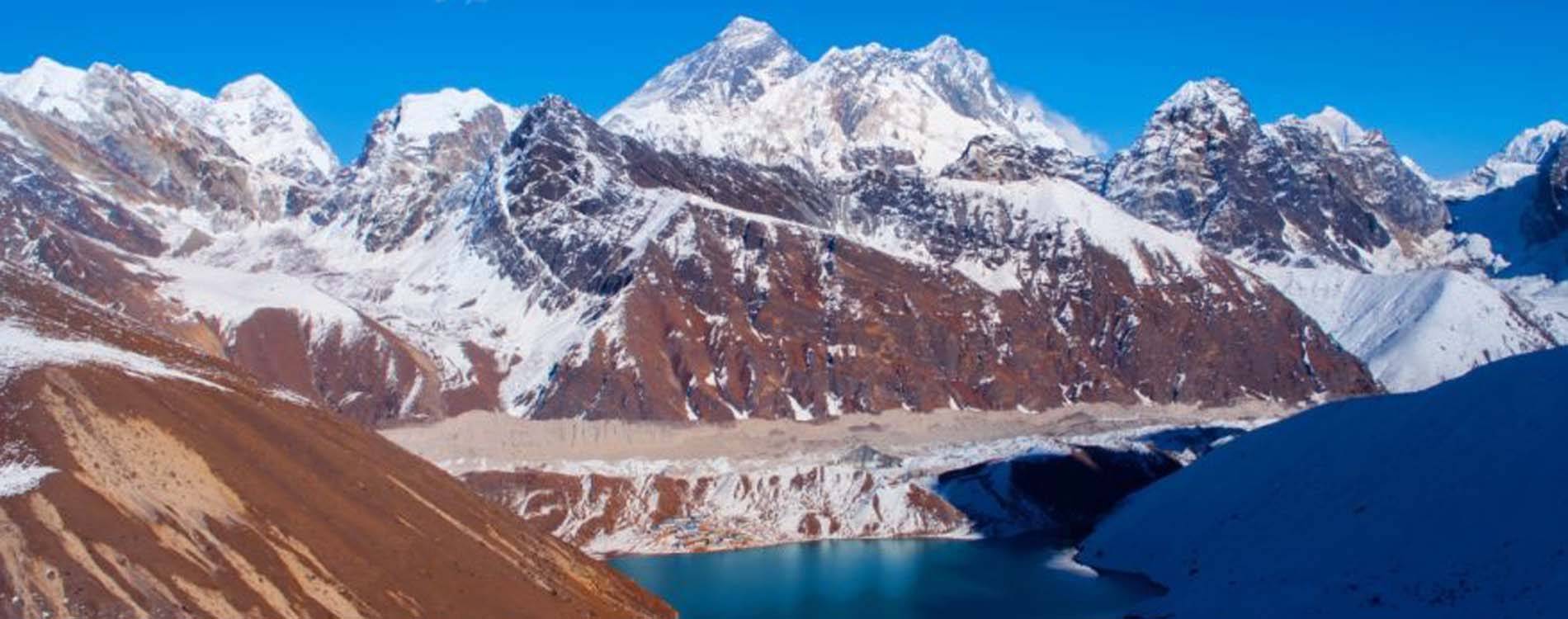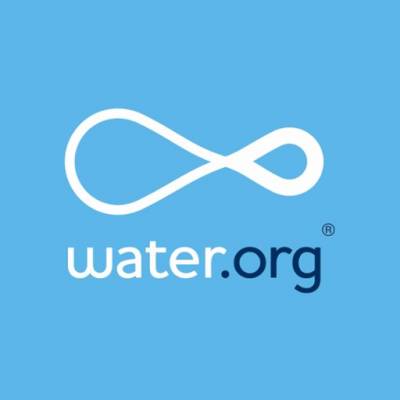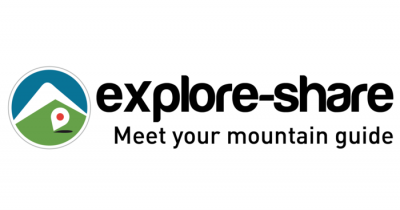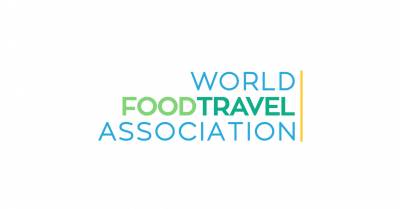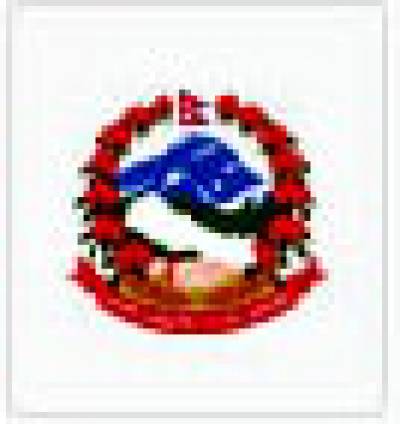16 DAYS EVEREST TWO HIGH PASSES TREK
Natural beauty, abundant wildlife & fauna, extraordinary views & exposure to Sherpa culture make this high altitude trek a challenge for the more serious adventurer.
This extended Everest Base Camp trek includes two physically demanding high altitude ascents through Chola Pass (5360m) and 5360m and Renjo La Pass (5360m). Entering the Sagarmatha National Park is your gateway to heaven and exposure to some of the most amazing scenery on the planet. On the trek, we may be fortunate to see a mountain goat, Musk deer, multi-colored pheasants (monal), snow duck and if luck is on our side, the Himalayan Snow Leopard.
A highlight of this trek is looking down on the culturally rich Buddhist villages of Gokyo, Dzongla, and Thame. Looking skyward you will be in awe of Mt.Gokyo Ri and below to the beautiful remote Gokyo Lake, one of 5 in the region at altitudes at 4700 and 5000m.. Along the trail you will have a unique perspective of several soaring peaks such as Mt Everest (8848m), Lhotse (8516m) at number 4, Makalu (8485m) at number 5 and, Cho-Oyu (8210m) at number 6 – truly a feast for the eyes! You will also pass through many other well-known Buddhist Sherpa villages such as Khumjung, Khunde, Tengboche, & Deboche. This will give you an amazing insight into how these people have lived and survived at these high altitudes while keeping their Buddhist faith.
Key Features of Everest Two High passes Trek
- Mindboggling views of Mt. Everest (8848m), Mt. Lhotse (8516m), Cho Oyu (8201m) and Mt. Makalu (8463m)
- See the unique array of wildlife - Musk Deer, pheasants, Snow Leopard, and Himalayan Thar
- Astounding panoramic view of the Himalayas from Kala Patthar (5550m)
- Highest glacier on the world- Khumbu Glacier (4900 m)
- Mystic Gokyo Valley and 5 Gokyo Lakes
- Ngozumpa Glacier, the longest glacier in the world
- Protected flora and fauna in Sagamartha National Park
- Astounding panoramic views of Gokyo Ri (5360m)
- Two of the three most famous passes in the Everest region: Chola and Renjo La Pass
ITINERARY
Day 1 : Fly to Lukla (2,810m) and Trek to Phakding (2,610m) Duration: 4-5 hours.
After an early morning start, you will be picked up at the hotel by our guide who will take you to the domestic terminal of Kathmandu airport. The flight from Kathmandu to Lukla takes around 35 minutes, time enough to take in the spectacular views of the Himalayas. After landing at Tenzing-Hilary airport you will meet your porter who will carry your luggage. You then begin your journey with a relatively easy trek passing a Kani (ceremonial gatehouse) before the trail descends then leads above Kyangma village with its large gompa (monastery) and school. We then continue to Cheplung village where the trail passes through community forest within sight of the Dudh Koshi River. After crossing the suspension bridge you climb across the ridge to Ghat and then passes a school and complex of Mani walls, Chortens and prayer wheels. After a short walk from Ghat, we reach Phakding. Overnight at a mountain lodge. Breakfast, lunch & dinner Included.
Day 2 : Trek to Namche Bazaar (3,445m) Duration: 5-6 hours.
After breakfast, the trek crosses several suspension bridges over the Dudh Kosi River before passing through Tok-Tok, Bhenkar, and Monjo and then arriving at Sagarmatha National Park entrance gate where you will be required to buy a permit. After following the river bed for a few hours and after the last Hillary suspension bridge, there is a steep uphill trek to Namche Bazaar. Namche has a good selection of restaurants, a cyber café, pubs, post office, ATM and banks. Breakfast, lunch & dinner included.
Day 3 : Acclimatization day at Namche Bazar.
This idyllic town is an ideal place for"acclimatization". Health specialists recommend we spend the day being active, rather than sitting idle. From Namche, it is possible to take a short hike to Everest View Resort, Thame, visiting Khunde or relax and explore Namche Bazaar. Namche Bazaar is the main center of the Everest (Khumbu) region and has government offices, ATMs, internet cafes, shops, restaurants, bakery, and a colorful market each Friday evening and Saturday. A short trek of only a hundred meters will help us to properly acclimatize. Our guides will also take us to the Tourist Visitor Center near the headquarters of the Sagarmatha National Park where we can observe an assortment of relics related to the first mountaineers to climb Everest, Sherpa culture and discover the varied plant and animal life of the Everest region. Breakfast, lunch & dinner included.
Day 4 : Trek to Tengboche (3,860m) Duration: 5-6 hours.
The trek continues along the rapid flowing glacial waters of the Dudh Kosi with magnificent views of the mountains (Mt. Everest, Lhoste, Taboche peak, Amadablam. You eventually reach an altitude of 3,800 meters at Tengboche. At the Tengboche monastery are unbelievably ornate wall hangings, a 20-foot sculpture of various poses of the Buddha and musical instruments and robes of the Lamas. Our group will be taken to observe a prayer ceremony, either in the evening or in the morning, depending on how the trekking goes this day. Breakfast, lunch & dinner included.
Day 5 : Trek to Dingboche (4,390m) Duration: 5-6 hours.
The trek from Tengboche to Dingboche is only a short distance which we will most likely complete in the afternoon. The last hill into Dingboche, and at this high altitude, is challenging!. The trail then heads to the village of Somare (4020m) and then to Orsho, both of which have lodged. Later the trail divides, with the left trail heading up to Pheriche before crossing a suspension bridge and a steep climb to the village of Dingboche (4460m) with many good guesthouses. Breakfast, lunch & dinner included.
Day 6 : Day outing and acclimatization at Dingboche.
This idyllic town is an ideal place for "acclimatization". Health specialists recommend we spend the day being active, rather than sitting idle. Today’s trek is fairly easy going and begins after breakfast at around 8:30. On the trail, we will be blessed with some awesome views, especially after breakfast. The trek up to Chhukung is quite nice and easy. We get a really nice view of most of the mountains especially Ama Dablam. In Nepali culture Ama Dablam means "Mother's necklace"; the long ridges on each side like the arms of a mother (ama) protecting her child, and the hanging glacier thought of as the Dablam, the traditional double-pendant containing pictures of the gods, worn by Sherpa women. Further along the trail and up the valley crossing moraines we head in the direction of Island Peak. Looking back to the south-west, we get an amazing view of the eastern face of Mt.Ama Dablam. From here we head downhill and back to Dingboche for the night. Heading back to Dingboche it is quite likely we are met with some fairly strong winds due to the exposed nature of the trail.
Day 7 : Trek to Lobuche (4,950m) Duration: 5-6 hours.
Today’s trek passes many Chortens (Tibetan shrines & tombs) taking around 1.5 hours before reaching the village of Thugla (4600m) where we have lunch at its tea house. After lunch, we head towards some towering peaks, such as Mt Pumori (7161m) and Mt. Nuptse (7861m) before reaching Lobuche Village (4940m). We then pass through an open valley before arriving at Thukla after leaving the Pheriche Aid Post at Pheriche (4371m). The aid post is manned during the peak trekking seasons We then descend to the yak pastures of the small settlement of Lobuche. Today's trek will take around 5 hours. Tonight we stay at Lobuche.
Day 8 : Trek to Gorakshep (5160m) and Hike to Everest base camp (5545m.), back to Gorakshep Duration: 6-7 hours.
This morning we will begin with a two-hour trek to Gorakshep. The trail is initially quite easy, but progressively becomes more difficult. Along the trail, we have some fantastic views of several towering peaks, such as Everest, Nuptse, and other enormous peaks. The trail continues for about 150 meters before traversing a moraine and then gets easier before arriving at Gorakshep, one on the world’s most isolated and highest settlements. After stopping for lunch we trek toward EBC following a trail alongside the Khumbu ice sheet. The trek around the ice sheet takes around 1.5 hours before crossing the glacier and into the region of EBC (5360m). At base camp, you will have an opportunity to meet other climbers and share stories. From EBC you will have views of the Khumbu ice sheet and glacier with its frightening and dangerous crevices. We will then descend to Gorakshep, a journey of 6 to 7 hours. Breakfast, Lunch, and Dinner Included.
Day 9 : Early morning climb up to Kalapather for sunrise then trek to Dzonglha (4,830m) Duration: 6-7 hours.
An early morning start and a 1.5-hour trek lead us to Kala Patthar taking advantage of the spectacular array of colors at sunrise on Everest and other towering peaks. After clicking madly we put our cameras down before heading back to Gorekshep for a well-deserved breakfast before continuing on to Dzolgla. In total the trek from Gorak Shep to Lobuche takes about 2 hours followed by another 2-hour trek that takes us back to Dzongla. Today we will have trekked for approximately 7 hours and after this mammoth effort will sleep soundly at Dzongla which is the only option before reaching Chola Pass. Breakfast, Lunch, and Dinner included.
Day 10 : Cross the Chola pass (5,420m) then trek down to Tagnag (4,695m) Duration: 6-7 hours.
Early morning after breakfast, we start our walk from Dzongla to the Cho-la pass. The walk over the glacier is an enjoyable experience if we can make the trip during the best season otherwise excess snow makes it impossible to cross the pass. As the darkness returns we trek down to Tagnag to spend the night there. Breakfast, Lunch, and Dinner Included.
Day 11 : Trek to Gokyo (4800m) then visit fifth lake back to Gokyo (4,770m) Duration: 5-6 hours.
A relatively short trek of around 2 to 3 hours today takes us to Gokyo where we stop for lunch. The rest of the day is spent exploring the Gokyo Valley and if time permits visit the glaciers and turquoise lakes of the Gokyo Valley. During our trek, we are gifted with some magnificent views of several massive soaring Himalayan peaks, such as Everest, Cho-Oyu (8188m 6th highest in the world), Lhotse Makalu and others. Tonight we stay at Gokyo. Breakfast, lunch, and Dinner included.
Day 12 : Climb to Gokyo Ri (5360m) and cross Renjo pass (5360m) down to Lungden (4,370m) Duration: 5-6 hours.
After an early breakfast, we will climb to Gokyo Ri (5333m) to enjoy the spectacular view of immense Ngozumpa Glacier, upper Gokyo Valley and the incredible beauty of Everest, Lhotse, Makalu, Nuptse, Cho-Oyu, and Gychung Kang The next phase of our journey takes us up and through Renjo La pass at (5300m) before descending to Lungden (4,350m) where we will stay the night. Breakfast, Lunch, and Dinner.
Day 13 : Trek to Thame village (3,820m) and visit Thame monastery Duration: 4-5 hours.
Today we take the trail that leads us to Thame (3800m) where we will visit the historic Thame monastery and witness soothing and enchanting Buddhist prayers. We can also get a real feel for Sherpa hospitality, traditions and culture of the local people. Tonight we will stay at Thame and prepare for tomorrow’s descent to Namche Bazaar. Breakfast, Lunch, and Dinner.
Day 14 : Trek down to Namche (3,445m) Duration: 5-6 hours.
Today we will pass through several villages including Khumjung and will have the mountains behind us as head to the famous Buddhist town of Namche Bazaar, alive with its abundance of Sherpa culture and vibrant atmosphere, where trekkers share their stories. Tonight we stay at Namche Bazaar. Breakfast, Lunch, and Dinner included.
Day 15 : Trek down to Lukla (2,830m) Duration: 6-7 hours.
This is our final day of trekking before returning to our starting point at Lukla. This is a time to reflect on the unforgettable memories of our trek as a group and our achieving our individual goals. A free afternoon allows you time to relax and enjoy a hot shower! In the evening we will celebrate with a few drinks and dance. Breakfast, Lunch, and Dinner included.
Day 16 : Fly back to Kathmandu Duration: 30 minutes.
Today, we take an early morning flight from Lukla to Kathmandu. After arriving at Kathmandu, you can take a rest or do some shopping. This is also a time to catch up on visiting places you missed on arrival in Kathmandu. Our guides will continue to assist you with b souvenir shopping or sightseeing.
SERVICES
Costs included:
- Domestic Airport picks up and transports by private Car/Jeep.
- Three meals a day (Breakfast, lunch, and dinner) during the trek.
- Fresh fruit every evening after dinner.
- Trekking Lodge (Tea House) accommodation during the trek.
- All necessary paperwork including Sagarmatha National Park Entry Permit & Khumbu Pasang Lhamu Rural Municipality fees.
- Kathmandu-Lukla-Kathmandu (Ramechhap -Lukla- Ramechhap) flight with private airport transfer and domestic airport tax.
- A highly experienced, helpful, knowledgeable, friendly, English speaking well trained, Government license holder guide with all his salary, food, drinks, accommodation, transport and insurance.
- Strong, helpful Sherpa porters with proper safety equipment and walking equipment, his salary, food, accommodation, and insurance (one porter for two people).
- Comprehensive medical supplies (first aid kit will be available).
- Arrangement of emergency helicopter service (paid by your Travel Insurance Company).
- Use of sleeping bag, down jacket, duffel bag and walking poles (if you don’t have your own, to be returned after trip completed).
- Sherpa Expedition and Trekking T-shirt
- Government taxes and official expenses.
- Trip achievement certificate after successful trip completion.
- Oxygen meter to check your pulse and oxygen saturation and heart rate twice daily (Very useful to check Altitude Mountain Sickness(AMS) symptoms) which will ensure your health during the trek.
- Assistant guide for groups of 8 or more people.
Costs Exclude
- Meals whilst you are in Kathmandu - lunch, and dinner.
- Hotel accommodation in Kathmandu
- Nepal entry visa fee (easy to obtain the visa on arrival at Tribhuvan International Airport – Kathmandu). $30 USD for 15-day, $50 USD for 30 Days, and $125 USD for 90 Days visa.
- Personal travel and medical insurance.
- International airfare.
- Your personal expenses.
- All the alcoholic and nonalcoholic, soup, tea, coffee, hot chocolate, cocoa, mineral water, extra food, cold and hot drinks on trek ( i.e. those you choose to purchase along the way and during evenings in the tea houses)
- All desserts & sweet things like chocolate, cake, pie, pudding.
- Hot shower and battery charging at the tea houses.
- Tips for the guide, porter, and driver (tipping is expected)
- Excess baggage of more than 10 kg for Lukla flight.
- NOTE: If you return earlier from the trek due to sickness or any problem, the money you paid for the flight, hotel, mountain room, food, etc. is nonrefundable, and you will need to bear the expenses for the hotel, food, etc. in Kathmandu yourself.
EQUIPMENTS
The following information will give you some idea about what you need to bring for the trek. It is important you do not forget the essential items, as this will determine your comfort and safety on the trek. Equally important is that you do not burden yourself with unnecessary equipment on the trek.
General
- All season sleeping bag and down Jacket (we can provide if you need it, but has to be returned after the trek)
- Duffle bag ( Sherpa Expedition & Trekking provide duffle bag during the trek but has to be returned after the trek)
- A wind and waterproof thin layered jacket (a must-have for morning and evenings above 3,000m)
- Daypack
Upper Body- Head / Ears / Eyewear
- A pair of half gloves
- A warmer hat that covers the ears
- Sunglasses
- Neckwarmer
- Sunscreen (35 to 60 SPF)
- Headlamp and an extra set of batteries
Hands
- A pair of half gloves for walking poles(if you prefer)
- Warmer shell gloves and liner
Upper Body
- long sleeve t-shirts
- Thermal tops
- wool jacket or pullover
- Sports bras for women and girls
- Water and windproof shell jacket
Lower Body
- Thermal underwear (especially trousers)
- windproof and waterproof trousers
- warmer trousers
- Comfortable trekking pants
- Extra casual sport pants
Footwear
- A pair of good waterproof trekking boots
- Pair of sandals
- 4-5 pairs of woolen socks
- Sock liners
- Light shoes and sneakers
- First Aid Kits and Medicines
- Assorted adhesive bandages (fabric preferred)
- Blister treatment cream or similar
- Insect / anti-itch ointment
- Ibuprofen or other pain-relief medication
- Diamox (125mg to 250mg tablets for altitude sickness)
- Warps, splints, and wound coverings butterfly bandage
- Water purifying pills
(Note our company guide will carry the medicines and first aid kits during the trek. However, we recommend you bring your personal first-aid kit as well)
Miscellaneous - but must useful on the trek
- 4 passport size photos with original passport
- Water bottle & filter
- Flight details (please make a copy and leave one pic at our office in KTM because in case you want to change your flight date)
- Bathroom kit (conform, should be included toilet paper, plastic bags, hand wipes, towel, and soap, etc.)
Extra things
- Comfortable trekking poles
- Quality energy dry foods (up to you)
- Power bank and music players
- Camera (memory card, chargers, and extra batteries)
GOOD TO KNOW
Accommodation
You will be accommodated in 3-star hotels in Kathmandu. During the trek, we will be staying at lodges/ teahouses. You may find comfort and better quality teahouses - having attached bathroom - until Namche which is a thriving town seeing many more tourists and a greater range of accommodation. It should be noted that at higher elevations the quality of accommodation may not be as good, with more basic rooms with the bare necessities.
Meals during the trek
In Kathmandu, your hotel includes breakfast, whereas all meals (breakfast, lunch, and dinner) will be provided during the trek. A staple food of the Khumbu region is potatoes, oats, buckwheat, Sherpa stew and Tibetan bread. Sherpas’ started farming potatoes when the first seeds were introduced to the region in the early 90s. There is a limited choice of food at higher elevations and except many potato dishes. Potatoes are high in carbohydrates – an excellent source of energy needed at high altitudes.
Transportation
We use a private car for sightseeing and for the airport to hotel pick and drop off. We do not have to use public transportation or local buses during the trek. Our only flights are from Kathmandu to Lukla and return.
Physical fitness
EBC is a challenging trek where you often have to walk 6-7 hours a day. You don’t need past experience of hiking or trekking but if you have done any kind of trekking activities then it is always a plus!. We have met people from all walks of life, shapes and sizes who have completed the trek.The only difficult part is when altitude sickness strikes and the effect that it can have on your body. Before leaving for Nepal it is good if you can prepare yourself physically by increasing your stamina and oxygen intake.
Remember – The better prepared – the more enjoyable your trek!
MAP
PHOTOS/Videos
Departures
Select a departure month
Fill out the form below and a Travel Expert will reach out to create your perfect tour.
FAQS
What is the level of trekking to Everest Two High pass?
The level is more difficult than other trekking programmers. However, Sherpa Expedition and Trekking tries its best to make the journey as easy, adventurous and joyful as possible.
How is the drinking water in the trails to Everest Two High pass?
Bottled water is easily available at a low cost. But you can not use plastic bottles in the Everest region. So, they do not sell plastic bottled mineral water. You need to drink mineral water or boiled filtered water in those areas. It is better to use water purification drops and tablets which you can either bring from your own country or buy in Kathmandu or Pokhara. Sherpa Expedition and Trekking also provides water purifier pill.
What is the weather condition at Everest Two High pass?
Weather on the trail to Everest Two High pass is always changing and impossible to predict. Here is a list of probable temperature and weather conditions in each month. Month Temperature Weather and Nature January Max 4°C in the daytime to min -17°C in the nights and mornings Blue skies, freezing weather February Max 4°C in the daytime to min -15°C in the nights and mornings Mild and humid, good visibility March Max 7°C in the daytime to min -12°C in the nights and mornings Days are short and the temperature starts to warm up, chances of occasional snow falls April Max 10°C in the daytime to min -5°C in a night Moderate temperature with amazing landscape, rhododendron and wildflowers May Max 15°C in the daytime to min 0°C in a night Days are still long, warm, and sunny June Max 16°C in the daytime to min -1°C in a night Rainy season July Max 15°C in the daytime to min 2°C in a night Hot and humid Auguest Max 16°C in the daytime to min 2°C in a night Max 16°C in the daytime to min 2°C in a night September Max 15°C in the daytime to min 2°C in a night End of monsoon, no clouds October Max 12°C in the daytime to min -6°C in a night Stable weather condition November Max 6°C in the daytime to min -12°C in a night Days are sunny and bright, cold during the night, sleeping bag is most. December Max 4°C in the daytime to min -14°C in a night Foggy and cloudy weather.
I have never hike before, can I make it to Everest Two High pass?
Yes, you can. No matter who you are, as long as you are reasonably fit, can walk for 5-6 hours a day and trek/hike a few uphills, Sherpa Expedition and Trekking Trekking team will support you to the fullest to transform your dream of standing Everest Two High pass into reality.
What is the best Season for trek to Everest Two High pass?
The month of March to May in Spring and September to December in autumn seasons are considered the best for the Everest Base Camp Trek as the weather conditions become favorable during this time, providing you with good visibility and a suitable atmosphere for Everest Two High pass trekking.
Is there an age limit for Everest Two High pass trekking?
No, there is no age limit for the trek to Everest Two High pass but, you need to be in good physical shape and have a positive attitude. We also suggest you to prior to the excursion though we suggest you to please see your doctor and obtain necessary permission and advice, as well as medications for traveling in extreme altitude prior to the excursion.
What are the meals on the Everest Two High pass trekking like?
During trekking, you will be served meals in the teahouses. Typical meals are noodles, rice, pasta or potato dishes along with vegetables and egg/chicken/meat dishes. Other items mostly served as breakfasts include Tibetan, egg, pancake, bread, porridge, muesli, and toasts with peanut butter and honey.
What kind of accommodation will be provided during the Everest Two High pass trekking?
A teahouse trekking accommodation will be made for you for the Everest Two High pass trekking whereby you will be able to stay at tea house(Local lodge) and have wholesome food and net and clean comfortable bed throughout your trekking journey. This form of arrangement also allows you to carry less baggage; you can trek at your own pace and enjoy the Everest panorama on your own schedule. It is also an eco-friendly way of trekking whereby trekkers can have more contact with the local's sherpa peoples.
Are there toilet facilities at the tea houses? What opportunities will I have for shower during trekking?
Most of the teahouses on the Everest Two High pass trail have squat toilet facilities but recently built lodges have western-style toilets as well. Nowadays, flush toilets are also being introduced with number of increasing foreign mountaineers each year. It is highly recommended to carry your own toilet paper and other required toiletries. Hot shower facilities are available till Gorakshep. The most common type is a bucket shower, usual buckets with tap filled with hot water and placed in a shower room. Hot shower costs from US$ 4 to 15 per use and the price increases along with the elevation. Attached bathrooms and toilets are not available unless you book for a luxury lodge during the Everest Two High pass trek.
What kind of clothes do we require for the trekking and is it possible to purchase it in Kathmandu before the start of the trip?
What you want to wear depends on you but we suggest you wear warm clothes during the Everest Two High pass trekking. A down jacket, thermal longs and top, comfortable trekking trousers, t-shirts, fleece, windproof jacket, hat, scarf, and gloves might be useful. There are numerous trekking shops in the Thamel area of Kathmandu where you can get all of these items in both local and branded stores alike. Sherpa Expedition and Trekking may also accompany and assist you if required.
Do I need to bring any bags for trekking? If yes, what kind?
During the Everest Two High pass trekking, you will be on a long journey for which you will need two bags to keep your belongings. A rucksack/duffle bag and a day bag for personal items. Sherpa Expedition and Trekking will provide you with a duffle bag (which is need to refund after the trek) that you can use throughout your entire journey and even afterward. These bags are durable and hence perfect for any kind of trekking journey. While the duffle bag will be carried by the potters, you will have to carry a day bag on your own. A day bag is a small backpack that has enough room for everything you will need on a day hike such as lunch, water, extra clothing and perhaps a few personnel items like camera, battery chargers, etc.
Do I need to bring any personal equipment like sleeping bags, down jackets, Trekking poles etc?
If possible, we suggest you bring your own equipment. However, sleeping bags and down jackets will be provided to you by Sherpa Expedition and Trekking. With regards to trekking poles, if you are used to walking with it then take them with you, as you will probably find them useful especially on the way down. They are not essential though and the walk is manageable without them. It is mostly a personal preference. If you prefer to take the trekking poles with you on the trekking then you can either bring your own pole or buy it from numerous options available in Kathmandu itself.
Is it possible for me to store extra clothing that I will not need?
Yes, if you have a bag of extra clothing for when you return from the trekking, you will be able to store it safely in Kathmandu Sherpa Expedition and Trekking office. The storage facility is provided by most hotels and lodges in Kathmandu or you can also store it in our office for the duration of the trekking.
What problems can arise on high altitude?
Our itinerary has been specially tailored to prevent any kind of AMS (Acute Mountain Sickness) while moving up to higher altitudes. Normally, altitude sickness starts from 3,600 meters and above. You will be trekking at a relatively slow and gradual pace as part of the acclimatization process. Cut off caffeinated, alcoholic and smoking items. Drink at least 4 liters of water a day. Trek slow. Don't skip the acclimatization days. Better to continue with Diamox (if any symptoms show up). Drink Garlic Soup. In the higher elevation, there is less oxygen in the air and this is more so while crossing high passes. Our expert guides will advise you on how to avoid AMS and treat it when/ if required.
Do I need insurance for Everest Two High pass Trek?
Make sure to have both medical and evacuation insurance before coming to Nepal for Everest Two High pass trekking. You should be careful in choosing a policy while traveling to a Himalayan country like Nepal as some insurance companies may make special exceptions for adventure travel. If you are confused about the insurance, please inform us and we will help you. It is usually better to arrange your insurance in your country before travel.
How long do I need to walk per day during my trek to Everest Two High pass?
The trekking will be 5-7 hours a day depending upon the landscape and destination. when you cross the high pass that day need to walk 7 to 10 hours.
How long will it take to reach Everest Two High pass?
It takes 6 to 19 days to reach Everest Two High pass top depending upon the mode of transportation and packages of Sherpa Expedition and Trekking offers.
How safe is Everest Two High pass trekking?
We at Sherpa Expedition and Trekking Team always have the safety, comfort, and satisfaction of our valued customers as our foremost priority at all times, and we assure you a wonderful and unforgettable time with us in our beautiful country. Sherpa team members of Sherpa Expedition and Trekking will be carrying all the necessary gear, equipment, and first aid kits and they have extensive first aid training. If a trekker falls sick on high altitude, the leader will decide whether to continue the trek. In case of emergency, Sherpa Expedition and Trekking have a rescue helicopter to bring you back from the higher elevation. Moreover, Sherpa Expedition and Trekking also provides oximeter to monitor the oxygen level at high altitude and offers regular health check-up facilities.
What are the mode of transportation?
You can either trek on foot or by a helicopter. Sherpa Expedition and Trekking offer exciting and reasonable Helicopter trek to Everest Three passes for 8 days and 19 days. Sherpa Expedition and Trekking can also customize your tour as per your necessity.
What if my flight to and from Lukla is cancelled or delayed?
The flights are usually regular between September and May. But due to high altitude, bad weather and unforeseen technical issues, you may experience a delay or cancellation of the flight. On the occurrence of such events, Sherpa Expedition and Trekking charter a helicopter to make sure you are on the safe schedule either for a trek or for your flight back home which would cost extra charge as an unexpected event. However, if the visibility is less than 1,500 meters, it is unable to operate helicopter facilities and Sherpa Expedition and Trekking will reschedule the flight.
What is the luggage limit for porter and flight to Lukla?
Sherpa Expedition and Trekking will provide one porter for two trekkers to carry 20 kgs of luggage (maximum 10 kg for each trekker). Please be sure your porters are not overloaded because they do not carry only your equipment but also lift your spirit to reach new heights, and your love, affection, and generosity can be the reason for them to work hard to take you to your destination. However, the weight limit on flights to the Everest region, basically to Lukla is a total of 10 kgs and you need to pay an extra amount per kg for the excess baggage. Sherpa Expedition and Trekking pays up to 5 kgs of extra baggage making your total to 15 kgs with your hand bag.
What types of liquid do I need to drink at high altitude?
Garlic soup is a must while trekking. Sherpa Expedition and Trekking recommend trekkers to drink green tea, lemon tea, hot lemon ginger tea and drink at least 2-4 liters of water a day. However, it is better to avoid alcohol and alcoholic beverages, caffeinated items, and hot-chocolates at high altitude.
I am a vegetarian. Am I supposed to get enough meal on my trek?
Sherpa Expedition and Trekking Trekking won’t recommend non-veg items because the meat in such places may not hygienic and healthy. Sherpa Expedition and Trekking also encourage to avoid dairy and cheesy items and strongly suggest not to consume them during the trek. So, our packages are suitable for both vegan and vegetarians.
Do I need to tip my porter and guide?
Your guide and porters are a big reason why you got a chance to feel something very few can have. Apart from guiding and carrying your necessities and being mindful of your safety, they want to see you happily succeeded more than anyone like family and help you successfully complete the trek safely. So, your tips reflect gratitude towards them. So, tipping is a recommended culture for porters and guide in Nepal as a gesture of thankfulness.
Can I buy the gear in Nepal and sell it afterwards?
Sherpa Expedition and Trekking will introduce dozens of shops selling knock-off gear in Kathmandu. You can also barter those gears at the knock-off places but be sure you keep the receipt safely. Moreover, you can rent the needed gears if you do not want to buy them.
Is there Wi-Fi on the trek?
Yes, most guesthouses offer Wi-Fi, for a small charge. it cost USD$5 per day.
Are there ATMs available during the Everest Two High pass trekking?
ATM services are available only in Namche Bazaar and Lukla. However, the services might not work or run out of cash. Therefore, we suggest you carry a small amount of money to buy snacks, etc during the trekking.
Will I be able to charge my batteries during trekking in the Everest Two High pass?
Most of the tea houses/ lodges have electricity whereby you will be able to charge your iPod or camera batteries. Please note that lodges/tea houses will charge you some extra money for the services. The fee may vary from 1 USD to 3 USD per hour.
Latest Traveller’s Reviews
Travel experiences of our clients who recently returned from their trips.
100%
Based On 38 Reviews
Violanthrene Ouyang
Australia
September 24, 2024
Incredible Scenery and Support
Trekking to Everest Base Camp and Cho La Pass with Sherpa Expedition was an incredible experience! The scenery was out of this world, with stunning views that took my breath away. Our guide was not only skilled but also provided excellent support and motivation throughout the trek. The team ensured we were well-prepared and acclimatized properly, which made the challenging aspects manageable. I loved learning about the Sherpa culture and sharing this journey with fellow trekkers. I highly recommend this trek for anyone seeking adventure and beauty in the Himalayas!
Carol Mitchell
Canada
September 12, 2024
A Journey to Remember
The Everest Base Camp and Cho La Pass Trek with Sherpa Expedition is a journey I will remember forever! The guides were exceptional, balancing professionalism with a warm, friendly approach. They shared valuable knowledge about the region, making the trek even more enriching. The views at every turn were jaw-dropping, and standing at the base camp was a dream come true. The support we received throughout the trek made it possible to conquer Cho La Pass with confidence. I highly recommend this trek for anyone seeking an unforgettable Himalayan adventure!
Ewa Wasiewicz
United Kingdom
August 20, 2024
Breathtaking Experience
The Everest Base Camp and Cho La Pass Trek with Sherpa Expedition was absolutely breathtaking! From the moment we started, the team was supportive and knowledgeable, ensuring we were well-prepared for the adventure. The views of the Himalayas were stunning, especially at Cho La Pass. Our guide shared fascinating insights about Sherpa culture and the surrounding landscapes, making each day even more special. The camaraderie among trekkers and the warmth of the Sherpa hospitality made this experience unforgettable. I highly recommend this trek to anyone seeking adventure!
People Considering This Package Right Now Check availability



